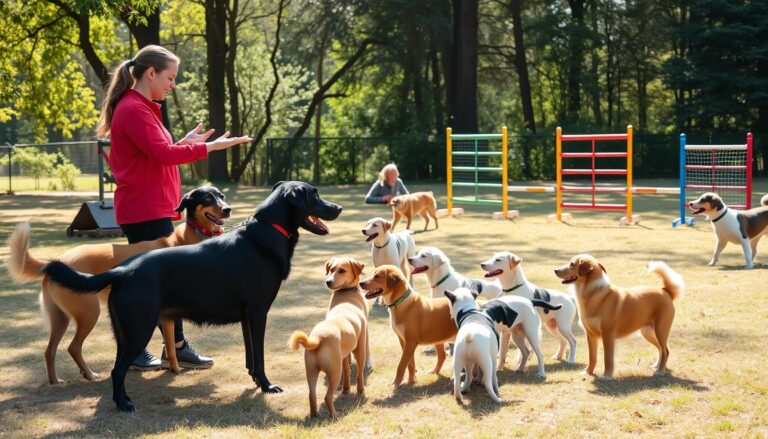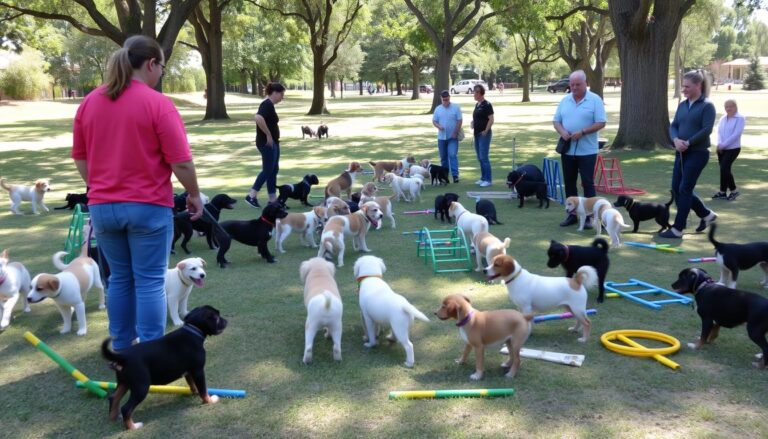Dog Training Near Me – Expert Tips and Advice
Ultimate Guide to Dog Training Near Me
Have you ever felt frustrated trying to communicate with your furry friend? Maybe your dog doesn’t listen to commands, struggles with bad habits, or has trouble socializing. Don’t worry—you’re not alone! Dog training is the perfect solution to bridge the communication gap between you and your pup while creating a stronger bond.
In this guide, we’ll explore everything you need to know about dog training, including finding the best trainers near you, understanding different training methods, and overcoming common challenges. Let’s dive in!
What Is Dog Training?
Dog training is the process of teaching your dog to understand commands, follow rules, and exhibit desirable behavior. It’s about building a relationship based on trust, communication, and consistency.
Training can be as simple as teaching basic commands like “sit” and “stay” or as advanced as agility training or therapy dog preparation. The ultimate goal? A happy, well-behaved dog that fits seamlessly into your lifestyle.
Did you know that humans have been training dogs for thousands of years? Ancient civilizations relied on dogs for hunting, guarding, and herding. While the methods have evolved, the purpose remains the same: fostering a harmonious relationship between humans and their canine companions.
Types of Dog Training
Every dog is unique, and so are their training needs. Let’s look at some common types of training:
Obedience Training
This is the foundation of all training. It focuses on basic commands like sit, stay, come, and heel. Obedience training sets the stage for a well-behaved dog, making everyday interactions smoother.
Behavioral Training
Does your dog bark excessively, chew furniture, or act aggressively? Behavioral training addresses these issues by identifying the root cause and correcting undesirable habits.
Socialization Training
Socialization is key for dogs to interact calmly and positively with other animals and people. This type of training helps prevent fear, anxiety, and aggression in unfamiliar settings.
Advanced Training
If you want your dog to perform specialized tasks, such as agility, therapy work, or even search and rescue, advanced training is the way to go.
Why Dog Training Matters
Why is dog training so important? Let’s break it down:
Benefits for Dogs
- Mental Stimulation: Training exercises challenge your dog’s mind, preventing boredom and destructive behavior.
- Better Behavior: Consistent training helps dogs understand boundaries and expectations.
- Confidence Building: A well-trained dog feels more secure and less anxious in various situations.
Benefits for Owners
- Improved Quality of Life: A well-trained dog means fewer headaches and more enjoyable outings.
- Stronger Bond: Training creates a deep connection between you and your dog, built on trust and mutual respect.
- Safety: Training can prevent accidents by ensuring your dog responds to commands in potentially dangerous situations.
How to Find Dog Training Near Me
Finding the right dog trainer doesn’t have to be a daunting task. Here are some practical tips:
Online Search Tips
- Use platforms like Google, Yelp, and Thumbtack to find dog trainers in your area.
- Look for trainers with high ratings, detailed reviews, and certifications.
- Don’t forget to check their website or social media for photos, videos, and testimonials.
Recommendations and Local Groups
- Ask friends, family, or fellow dog owners for recommendations.
- Join local Facebook groups or community forums to get insights from other pet parents.
- Attend dog parks or events to meet trainers or get referrals from other owners.
What to Look for in a Dog Trainer
Not all dog trainers are created equal. Here’s what to consider:
Certification and Experience
Look for trainers certified by reputable organizations like the Certification Council for Professional Dog Trainers (CCPDT) or International Association of Canine Professionals (IACP). Experience with different breeds and behavioral issues is also a plus.
Training Methods
Positive reinforcement is the gold standard in dog training. Avoid trainers who rely on harsh or aversive methods, as they can harm your dog’s mental and emotional well-being.
Specialization
If your dog has specific needs (e.g., aggression issues or service dog training), ensure the trainer has expertise in that area.
Cost of Dog Training Near Me
Dog training costs can vary widely depending on location, trainer expertise, and the type of training. Here’s a general breakdown:
- Group Classes: $30–$80 per session. Great for socialization and basic obedience.
- Private Training: $50–$150 per session. Ideal for personalized attention and specific issues.
- Board-and-Train Programs: $1,000–$3,000+ for multi-week programs. Trainers work with your dog intensively while they stay at a facility.
Best Practices for Training Success
Training your dog requires effort, patience, and consistency. Here are some tips to maximize success:
Consistency Is Key
Dogs thrive on routine. Use the same commands, rewards, and expectations every time to avoid confusion.
Patience and Positivity
Training takes time, especially for stubborn or anxious dogs. Celebrate small victories and avoid punishment.
Practice Outside of Sessions
Reinforce what your dog learns during training sessions by practicing at home or during walks.
Dog Training at Home vs. Professional Trainers
Should you train your dog yourself or hire a professional?
Training at Home
- Pros: Affordable, flexible, and strengthens your bond with your dog.
- Cons: Limited expertise and potential difficulty addressing complex issues.
Professional Trainers
- Pros: Expertise, structured programs, and faster results.
- Cons: Higher cost and reliance on scheduling availability.
Top Dog Training Centers in Major U.S. Cities
Los Angeles
Known for its active pet community, LA offers a wide range of dog training services, from basic obedience to advanced agility courses.
New York City
In the bustling streets of NYC, you’ll find trainers who specialize in urban dog training, addressing challenges like leash walking and crowded spaces.
Chicago
From group classes to private sessions, Chicago’s trainers cater to all breeds and behavioral needs.
Austin
Austin’s dog-friendly culture makes it a hotspot for training centers offering everything from puppy classes to off-leash training.
Common Dog Training Challenges
Stubborn Behavior
Some dogs are naturally independent and may resist training. Patience and high-value rewards (like favorite treats) can help.
Fear and Anxiety Issues
Slow, gentle exposure to triggers and positive reinforcement can build confidence in fearful dogs.
Potty Training Struggles
Consistency and a regular schedule are essential. Accidents happen, so don’t lose hope!
Dog Training FAQs
- How long does dog training take?
It depends on the dog’s age, temperament, and the training goals. Basic training can take a few weeks, while advanced skills may require months. - What’s the best age to start training?
Puppies as young as eight weeks can begin basic obedience and socialization training. - Can older dogs be trained?
Absolutely! It’s never too late to teach a dog new behaviors or correct bad habits. - Are online dog training classes effective?
Yes, especially for basic skills. However, in-person sessions are better for addressing specific issues. - What should I bring to training sessions?
A leash, high-value treats, your dog’s favorite toy, and a positive attitude.
Conclusion
Dog training is one of the best investments you can make for your furry friend. Whether you choose to train at home or hire a professional, the benefits are undeniable: a happy, well-behaved dog and a stronger bond with your pet. Start your journey today by searching for “dog training near me” and discover the joy of a well-trained pup!






